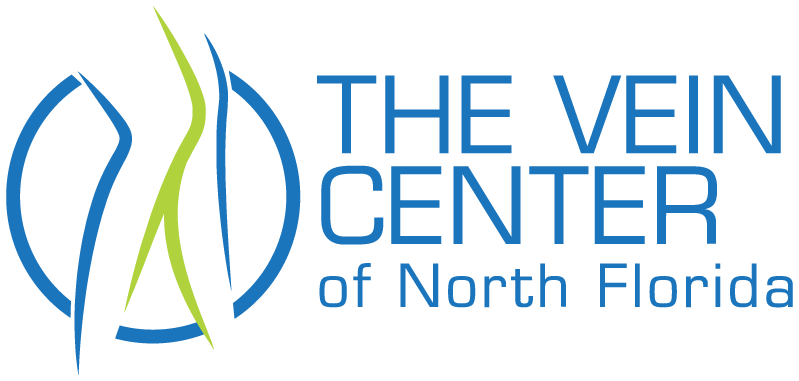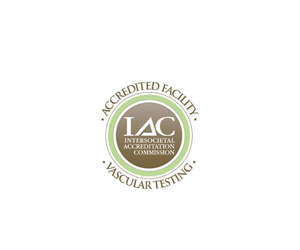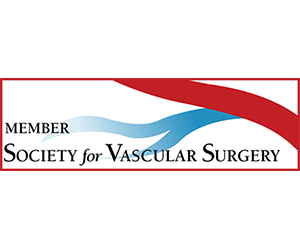Table of Contents
Did you know that understanding and managing carotid artery health can significantly reduce the risk of stroke? While stroke remains a serious concern, advances in medical knowledge and treatment options have made it increasingly preventable and treatable. Although carotid artery disease affects only a small percentage of the population, it is now well understood and can often be managed effectively.
At Surgical Specialists of Ocala, Dr. Ravi Chandra, Dr. Ksenia Orlova and team members are dedicated to empowering our community with knowledge about vascular health. We believe that awareness is the first step toward prevention and better outcomes. In this article, we will explore carotid artery disease, highlighting causes, symptoms and the treatment options available today.
Understanding carotid artery health is important to maintaining overall well-being. By learning about this condition, you are taking a proactive step towards safeguarding your health. Join us as we delve into this topic, offering insights that can help you make informed decisions about your vascular health.
Our goal is to provide you with valuable information that can contribute to a healthier, more vibrant life. Let’s embark on this educational journey together, focusing on the positive impact that knowledge and proactive care can have on our health and well-being.
What Is Carotid Artery Stenosis?
Carotid artery stenosis occurs when the carotid artery, which is located on each side of the neck, gets blocked due to the buildup of plaque consisting of fatty cholesterol deposits. This blockage disrupts normal blood flow, which significantly increases the risk of stroke. Atherosclerosis, which is the accumulation of plaque, is responsible for this condition.
The carotid arteries are two major vessels in the neck that deliver blood to the brain, face, and head. When healthy, these arteries are smooth and open, facilitating the unimpeded flow of blood like clean pipes. However, the development of carotid artery stenosis compromises this function, posing serious risks if left untreated, including stroke and its potentially fatal consequences.
How Does Carotid Artery Disease Occur?

Similar to the coronary arteries that supply blood to the heart, the carotid arteries are susceptible to developing atherosclerosis, commonly known as “hardening of the arteries.” This process involves the accumulation of fatty substances and cholesterol on the inner walls of the vessels, gradually narrowing the carotid arteries. Consequently, this restricts blood flow to the brain, elevating the risk of a stroke.
A stroke, often referred to as a “brain attack,” shares similarities with a heart attack. It occurs when blood flow to a part of the brain is obstructed. If the lack of blood flow persists for more than three to six hours, the resulting damage is typically irreversible. Several factors can precipitate a stroke, including:
- Severe narrowing of the artery
- Rupture in an artery leading to the brain that has atherosclerosis
- Dislodgement of a piece of plaque, leading to blockage in smaller brain arteries
- Formation of a blood clot that obstructs a blood vessel
While carotid artery disease is a significant contributor to strokes, other conditions can also trigger this medical emergency. These include sudden bleeding in the brain, known as intracerebral hemorrhage, as well as subarachnoid hemorrhage, atrial fibrillation, cardiomyopathy, high blood pressure, and blockage of tiny arteries within the brain.
Causes And Risks For Carotid Artery Stenosis

Numerous factors can elevate the likelihood of developing carotid artery stenosis gradually. While some of these factors are modifiable, others exacerbate existing risks:
- Tobacco use, including smoking
- Obesity
- Sedentary lifestyle
- Hypertension (high blood pressure)
- Elevated cholesterol levels
- Diabetes
- Advancing age
What Are The Symptoms Of Carotid Artery Stenosis?
During its initial phases, carotid artery disease can remain asymptomatic. Manifestations of the condition might only become apparent when it reaches a critical stage, leading to a deprivation of blood to the brain, ultimately resulting in a stroke or transient ischemic attack (TIA).
Symptoms indicative of a stroke or TIA encompass:
- Abrupt numbness or weakness, typically affecting one side of the face or body.
- Suddenly experiencing difficulty speaking or comprehending speech.
- Sudden vision impairment in one or both eyes.
- Unexpected dizziness or loss of balance.
- Onset of a severe headache without a discernible cause.
How Is Carotid Artery Stenosis Treated?

The primary objective of treating carotid artery stenosis at Surgical Specialists of Ocala is to impede the progression of the condition. This begins with lifestyle adjustments, such as adopting a healthy diet, regular exercise and quitting smoking. Additionally, a daily low-dose aspirin regimen, along with medications to manage blood pressure and cholesterol levels, may be indicated.
In cases where the condition is severe or presents symptoms of a transient ischemic attack (TIA) or stroke, surgical intervention may be necessary. Carotid endarterectomy, a surgical procedure aimed at removing plaque from the carotid artery through an incision, or carotid artery stenting, involving the placement of a stent to widen the artery and redirect blood flow, are options. Our physicians will review, discuss and order the best treatment plan for each patient.
It is important to note that not all instances of carotid stenosis require surgical intervention, as these procedures carry inherent risks. Surgeons recommend such procedures only when the potential risks associated with severe stenosis or stroke outweigh those of the intervention itself.
Prevention
By reducing risk factors can help with the prevention of carotid artery disease or mitigate its progression:
- Quit Smoking: Within a few years of cessation, the risk of stroke for former smokers resembles that of nonsmokers.
- Maintain a Healthy Weight: Obesity exacerbates other risk factors, including high blood pressure, cardiovascular disease, diabetes, and sleep apnea.
- Adopt a Nutritious Diet: Prioritize fruits, vegetables, whole grains, fish, nuts, and legumes while restricting cholesterol and fats, especially saturated and trans fats.
- Moderate Salt Intake: Excessive salt consumption can elevate blood pressure in certain individuals. Health professionals recommend limiting salt intake to less than 1,500 milligrams per day for optimal health.
- Engage in Regular Exercise: Physical activity aids in lowering blood pressure, boosting high-density lipoprotein (HDL) cholesterol (known as the “good” cholesterol), enhancing overall cardiovascular health, weight management, diabetes control, and stress reduction.
- Limit Alcohol Consumption: If alcohol consumption is part of your lifestyle, do so in moderation. For women, this typically means up to one drink per day, while men can consume up to two drinks daily.
- Manage Chronic Conditions: Effectively controlling illnesses like diabetes and high blood pressure is pivotal to safeguarding the health of arteries.
Please do not ignore the signs of carotid artery disease. If you’re experiencing symptoms or have risk factors for this condition, don’t hesitate to schedule an appointment with us at Surgical Specialists of Ocala to receive an expert evaluation and personalized treatment. Your vascular health is our priority, and we’re here to help you every step of the way.





